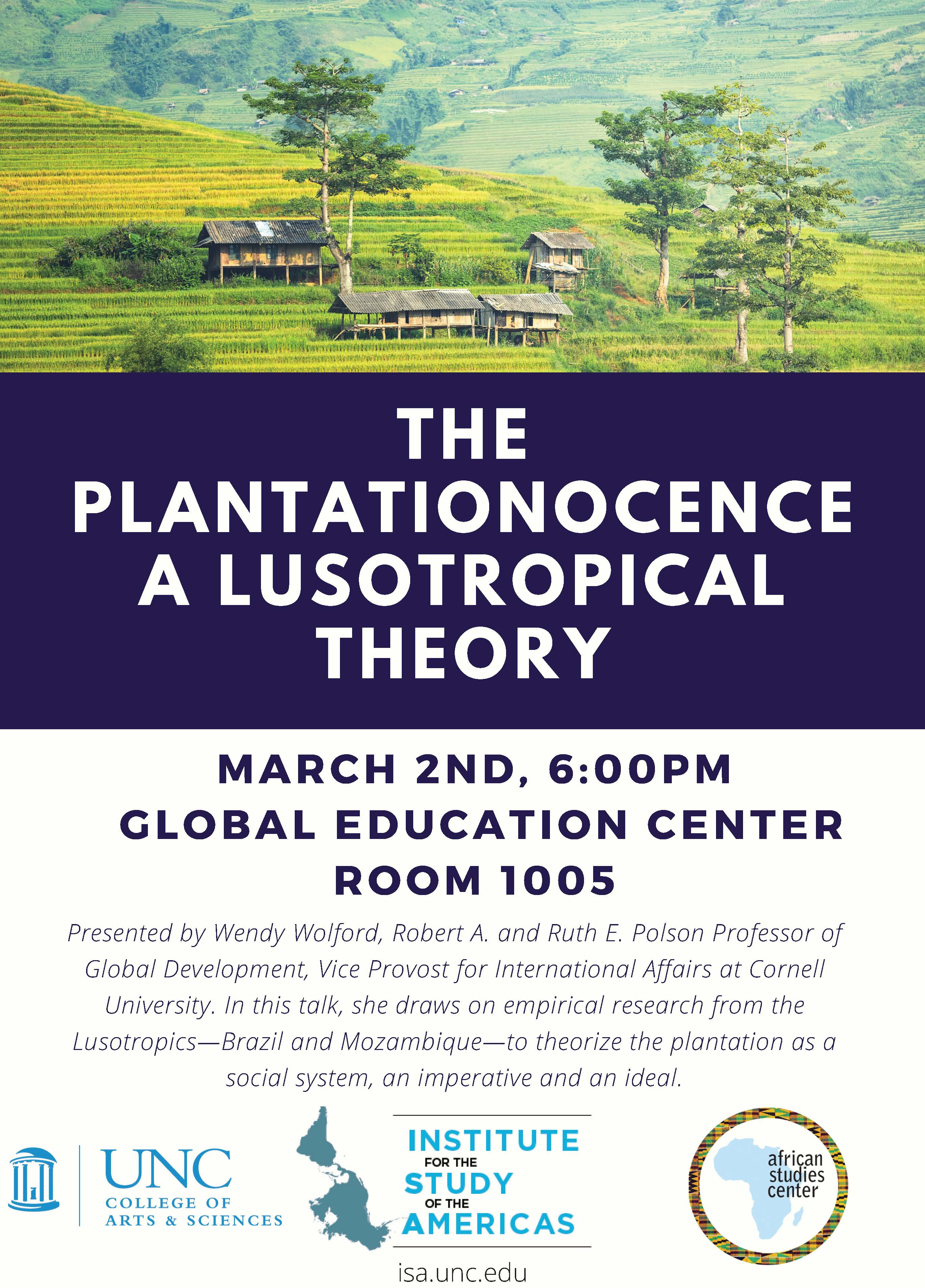The Plantationocene: A Lusotropical Theory
Speaker: Wendy Wolford
Date: March 2, 2020
Time: 6:00pm
Address: Fed Ex Global Education Center, Room 1005, 301 Pittsboro Street, Chapel Hill, NC
Wendy Wolford's research addresses issues within and between the political economy of development, agrarian studies, social mobilization, land reform, and political ecologies of conservation. She is the Robert A. and Ruth E. Polson Professor of Global Development and Vice Provost for International Affairs at Cornell University. For over fifteen years, she has worked with one of the most exciting and important grassroots social movements in Latin American history, the Movimento dos Trabalhadores Rurais Sem Terra (the Movement of Rural Landless Workers, or the MST).
From the earliest hunter-gatherer communities to the formation of the modern nation state and the search for new frontiers, land has been central to the organization of society. Land is the stuff of dreams, home, livelihood, territorial ambition, and the basis of empire. If we center land in our understanding of social life, then the defining characteristic of the modern era is the way in which the logic of the plantation has sustained an elite, propelled colonial exploration, organized labor and shaped both the cultures we consume and the cultural norms we inhabit and perform. In this talk, she draws on empirical research from the Lusotropics—Brazil and Mozambique—to theorize the plantation as a social system, an imperative and an ideal.
Co-sponsored by the African Studies Center and the College of Arts and Sciences.


